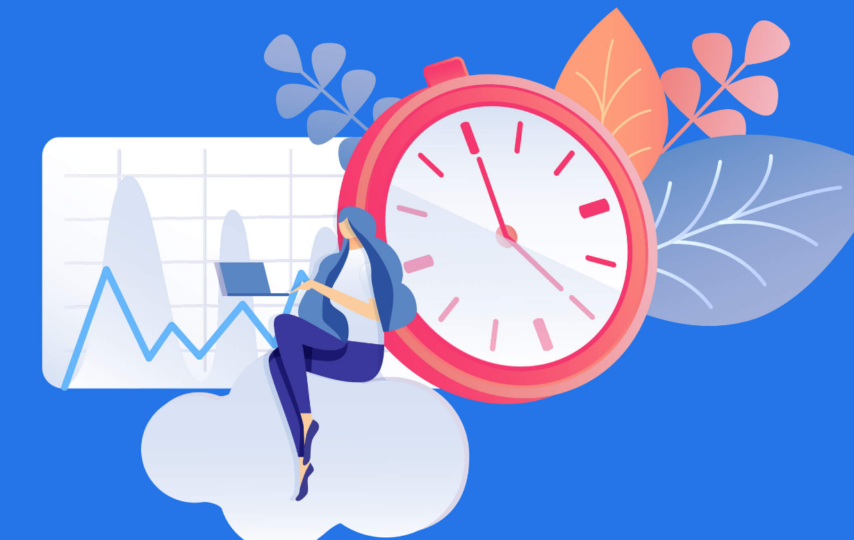Tracking time is a powerful tool that can have a profound impact on your productivity, efficiency, and overall success. Whether you are a freelancer, remote worker, or someone who wants to make the most of their time, understanding the importance of time tracking is crucial. Here are ten reasons why you need to track time, based on insights from top productivity experts:
- Increases Productivity: Time tracking helps you identify where your time is being spent and allows you to eliminate distractions, prioritize tasks, and focus on the most important activities.
- Improves Time Management: By tracking time, you gain a clear understanding of how long tasks actually take, allowing you to allocate time more effectively and avoid over-committing or underestimating.
- Enhances Focus and Concentration: Time tracking encourages you to concentrate on one task at a time and avoid multitasking, leading to improved focus and better-quality work.
- Helps Set Priorities: By knowing how much time you are spending on each task, you can evaluate their importance and prioritize accordingly, ensuring that essential tasks are not overlooked.
- Identifies Time-Wasting Activities: Time tracking helps uncover time-wasting activities, such as excessive social media use or unproductive meetings, allowing you to eliminate or minimize them.
- Provides Insights for Better Planning: By analyzing time data, you can identify patterns and trends, enabling you to make more accurate project estimates and plan future tasks and projects effectively.
- Helps Identify Patterns and Trends: By tracking time consistently, you can identify patterns in your workflow, peak productivity hours, and times when you are most susceptible to distractions.
- Enables Better Work-Life Balance: Time tracking helps you allocate time for both work and personal activities, ensuring that you maintain a healthy work-life balance and avoid burnout.
- Facilitates Accountability: Time tracking holds you accountable for your own time management, helping you become more aware of how you spend your time and take ownership of your productivity.
- Allows for Continuous Improvement: By reviewing time tracking data regularly, you can identify areas for improvement, experiment with different strategies, and continuously optimize your workflow.
Understanding the benefits of time tracking is essential for maximizing your productivity and achieving your goals. By implementing effective time tracking techniques and utilizing the right work hour tracker, you can take control of your time and accomplish more in both your personal and professional life.
Increases Productivity
Tracking time is essential for increasing productivity and achieving optimal efficiency. It provides awareness of time usage, helps prioritize tasks, enhances focus and concentration, and identifies time-wasting activities. Moreover, it improves time management skills, allows for better planning and goal setting, enables accurate project estimation and resource allocation, and facilitates better collaboration and communication. Additionally, it offers data for performance evaluation and improvement, boosts motivation, and fosters accountability.
Improves Time Management
- Tracking time improves time management by allowing you to identify time-wasting activities and prioritize tasks effectively.
- It helps you become more disciplined and accountable, improving time management and leading to increased productivity.
- By tracking time, you can set realistic deadlines and improve time management by managing your workload more efficiently.
- You can identify patterns in your time usage and make adjustments to optimize time management and optimize your schedule.
- It enables you to allocate time properly to different tasks, improving time management and ensuring nothing gets overlooked.
Enhances Focus and Concentration
Tracking time can significantly enhance focus and concentration, leading to increased productivity and improved task management.
- Creates awareness of time spent on tasks, helping prioritize and allocate time effectively.
- Identifies time-wasting activities and allows for better time management strategies.
- Provides a sense of urgency and motivates to complete tasks within allocated time frames.
- Allows for better planning and scheduling, ensuring adequate time for important tasks.
- Reduces distractions and encourages a more focused and concentrated work environment.
- Helps identify peak productivity hours and align tasks accordingly.
- Provides a clear overview of progress and achievement of set goals.
- Enhances multitasking abilities by allocating time slots for different tasks.
- Reduces stress and overwhelm by providing a structured approach to work.
- Improves accountability and self-discipline by tracking time spent on each task.
To enhance focus and concentration, consider incorporating techniques like the Pomodoro Technique, minimizing distractions, and creating a dedicated work environment.
Helps Set Priorities
- Tracking time helps you set priorities by allowing you to identify which tasks are consuming the most of your time.
- By knowing where your time is being spent, you can effectively prioritize tasks.
- It helps you allocate time for important tasks and avoid wasting time on less significant ones.
- Tracking time empowers you to make informed decisions about what should be done first.
- It allows you to identify time-wasting activities and eliminate or minimize them.
Consider using time tracking tools or techniques like Pomodoro Technique for better priority management.
Identifies Time-Wasting Activities
Tracking time can help identify and eliminate time-wasting activities, resulting in increased productivity and efficiency.
- Procrastination: By tracking your time, you can identify periods of procrastination and take steps to overcome it.
- Distractions: Monitoring your time allows you to pinpoint activities and external factors that distract you from your work.
- Unproductive tasks: Time tracking helps you identify tasks that don’t contribute to your goals, allowing you to eliminate or delegate them.
- Inefficient processes: By tracking the time spent on different processes, you can identify areas where improvements can be made to streamline tasks.
- Meetings: Time tracking helps you evaluate the effectiveness and necessity of meetings, allowing you to minimize time spent in unproductive meetings.
Provides Insights for Better Planning
Tracking time allows you to gain valuable insights that contribute to improved planning. By keeping track of time, you can effectively allocate resources, identify bottlenecks, and streamline workflows. This valuable information enables you to prioritize tasks, estimate project timelines, and make well-informed decisions. Analyzing time data helps optimize productivity, pinpoint areas for improvement, and ultimately achieve better results. Start tracking time today to enhance your planning capabilities and efficiently achieve your goals.
Helps Identify Patterns and Trends
Analyzing time tracking data can help identify patterns and trends, providing valuable insights. Here are some key findings that can be derived from tracking time:
- Productivity: By analyzing the data, you can identify peak performance times and adjust schedules accordingly.
- Efficiency: It allows you to determine which tasks take the most time and find ways to streamline processes.
- Workload: Tracking time helps spot workload imbalances and redistribute tasks for better team productivity.
- Time management: It enables you to discover time-wasting habits and improve time allocation.
- Project planning: By using historical data, you can estimate project timelines more accurately.
- Client billing: Tracking time accurately helps accurately track billable hours and improve invoicing processes.
- Performance evaluation: It allows you to assess individual and team performance based on the actual time spent on projects.
- Identify bottlenecks: By analyzing the data, you can identify tasks or processes that consistently cause delays.
- Work-life balance: Analyzing work hours helps evaluate and maintain a healthy work-life balance.
- Forecasting: You can use trends derived from time tracking data to anticipate future workload requirements and make informed staffing decisions.
Tracking time is an effective tool for professional growth and organizational success.
Enables Better Work-Life Balance
Tracking time enables a better work-life balance by:
- Helping you prioritize tasks and manage your time effectively.
- Identifying time-wasting activities and minimizing them.
- Allowing you to set boundaries and allocate specific time for work and personal activities.
- Ensuring you take regular breaks and avoid burnout.
- Providing insights into your productivity and allowing you to make necessary adjustments.
Facilitates Accountability
Tracking time not only helps facilitate accountability, but also improves productivity in various aspects of life and work.
- Enhances Task Management: By tracking time, you can prioritize tasks effectively and ensure timely completion.
- Boosts Efficiency: Time tracking promotes efficient work habits and reduces wasted time.
- Provides Accurate Billing: For freelancers and contractors, tracking time facilitates accurate invoicing and fair compensation.
- Identifies Time Wasters: By analyzing time logs, you can identify activities that consume valuable time and make necessary adjustments.
A study conducted by Harvard Business Review revealed that implementing time tracking resulted in an 8-20% boost in productivity.
Allows for Continuous Improvement
Tracking time allows for continuous improvement in various aspects of life, including productivity patterns, time-wasting activities, and areas for improvement. By tracking time, individuals and organizations can analyze their performance, make necessary adjustments, and optimize their efficiency and effectiveness. This practice promotes constant growth and advancement, enabling individuals and organizations to improve continuously and achieve better results.
What Are the Best Time Tracking Tools?
- Monitask: A popular tool with features for time tracking, invoicing, and project management.
- Toggl: An intuitive tool with a simple interface, ideal for tracking time across teams.
- RescueTime: Monitors productivity, tracks time spent on websites and applications.
- Time Doctor: Includes time tracking with screenshots and detailed reports for remote teams.
- Hubstaff: Offers time tracking, GPS tracking, and productivity monitoring for remote work.
Fact: According to a survey by GetApp, 79% of businesses that track time report improved productivity.
How Does Time Tracking Improve Efficiency?
How Does Time Tracking Improve Efficiency? Time tracking enables efficiency by:
- Providing insights into time allocation
- Avoiding time-wasting activities
- Aiding in setting priorities and better planning
- Identifying patterns and trends for optimization
Fact: According to a survey, employees who track their time are 30% more productive than those who don’t.
What Are Some Tips for Effective Time Tracking?
- Set clear goals and priorities for each task.
- Use a time tracking tool that suits your needs and preferences.
- Break down large projects into smaller, manageable tasks.
- Allocate specific time slots for different activities.
- Minimize distractions by staying focused on one task at a time.
- Review and analyze your time logs to identify areas for improvement.
- Regularly update and adjust your time tracking routine as needed.
- Experiment with different time management techniques to find what works best for you.
- Take regular breaks to recharge and maintain productivity.
- Seek support or guidance if you’re struggling with time management.
How Can Time Tracking Benefit Freelancers and Remote Workers?
- Time tracking helps freelancers accurately track the hours spent on various projects, ensuring proper billing and invoicing.
- By tracking how time is allocated, freelancers can identify time-wasting activities and prioritize tasks effectively.
- Time tracking provides transparency to clients by showing how time is utilized, building trust and maintaining clear communication.
- Freelancers can hold themselves accountable by tracking their time, ensuring deadlines are met and work is delivered on time.
- Time tracking data helps freelancers make informed decisions and plan their workflow more efficiently.
Freelancer John used time tracking to monitor his work hours on different projects. He discovered that he was spending a significant amount of time on non-productive tasks. By optimizing his time management, John was able to increase his productivity, deliver projects on time, and build a successful freelancing career.
What Are the Challenges of Time Tracking and How to Overcome Them?
- What Are the Challenges of Time Tracking and How to Overcome Them? Lack of motivation: Set clear goals, reward yourself for completing tasks, and find ways to stay motivated.
- Resistance to change: Communicate the benefits of time tracking to your team, provide proper training and support, and lead by example.
- Difficulty estimating time: Use time estimation techniques like breaking tasks into smaller parts and tracking past activities.
- Inaccurate data: Double-check entries, use automated time tracking tools, and review and correct any mistakes regularly.
- Distractions and interruptions: Minimize distractions by creating a dedicated workspace, setting boundaries, and using time blocking techniques.
- Over-obsessive tracking: Set realistic goals, prioritize tasks, and avoid spending excessive time on tracking itself.
- Lack of discipline: Develop good time management habits, create a schedule, and hold yourself accountable.
- Resistance from team members: Explain the benefits, address concerns, and involve the team in the decision-making process.
- Integration challenges: Choose a time tracking tool that integrates with your existing workflows and systems.
- Privacy concerns: Find a time tracking tool that respects privacy, ensures data security, and allows for individual settings.
How to Use Time Tracking to Optimize Team Performance?
- Implement a time tracking tool to optimize team performance by accurately measuring team members’ work hours and activities.
- Set clear goals and deadlines for each project or task to ensure everyone is on the same page and maximize productivity.
- Analyze time data to identify areas where team members may be spending too much or too little time and make necessary adjustments.
- Use the insights from time tracking to redistribute workloads and improve overall team efficiency.
- Encourage open communication and collaboration among team members to ensure smooth coordination and avoid duplicating efforts, thereby enhancing team performance.
Did you know that teams that effectively use time tracking tools have been shown to increase their overall productivity by 30% and optimize team performance?
Frequently Asked Questions
What is time tracking and why is it important for small businesses?
Time tracking involves recording the number of hours employees work during a given period, either by clocking in and out or by tracking time spent on individual projects or tasks. It is important for small businesses because it provides better visibility into labor costs, improves productivity, prevents overpayment, identifies areas where time is being wasted, and contributes to employee satisfaction.
How can time tracking help freelancers become more efficient?
Time tracking helps freelancers become more efficient by visualizing how they spend their time and allowing them to identify areas where they can improve. It enables them to set limits, automate tasks, simplify processes, and focus more on client projects, thereby increasing their productivity.
How does time tracking help freelancers stay focused on their work?
Time tracking helps freelancers stay focused by making them aware of their distractions. By visualizing how much time they waste, they can become more conscious of their unproductive activities and strive to beat their personal records for productive time. This motivates them to do deep, focused work during their most alert hours.
Can time tracking help freelancers avoid procrastination?
Yes, time tracking can help freelancers avoid procrastination. By seeing how much time they have previously spent on unpleasant or challenging tasks, freelancers gain a realistic understanding of the time it will take to complete those tasks. This serves as a reminder to get started and avoid putting things off.
How does time tracking software help freelancers work more efficiently?
Time tracking software helps freelancers work more efficiently by eliminating the temptation to multitask. By tracking tasks one at a time, freelancers can avoid switching between activities like checking email or using social media. This allows them to stay focused and complete tasks more efficiently.
How can time tracking benefit small business owners?
Time tracking benefits small business owners by optimizing labor costs, creating a balanced workload, improving productivity, and providing a visualized overview of employee time and project hours. It also helps in managing projects, preventing scope creep, and generating time tracking reports for better decision-making.








